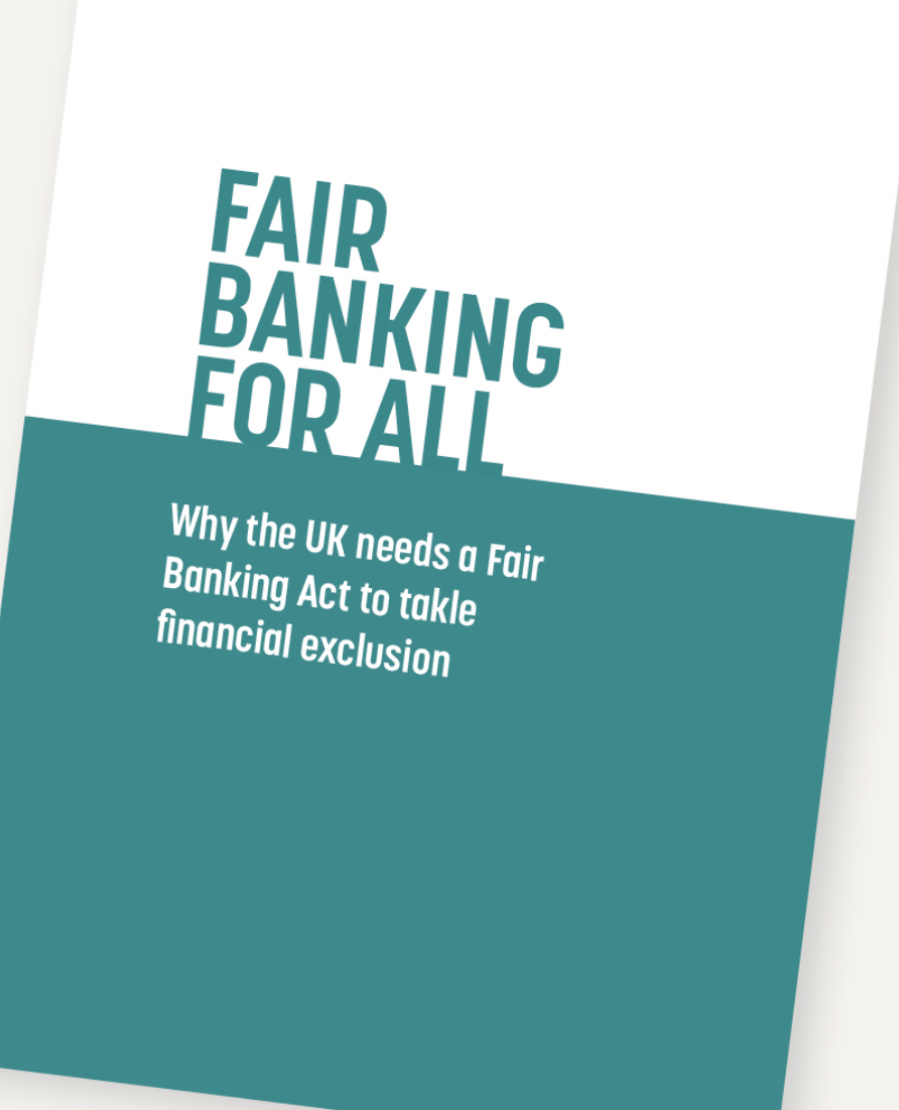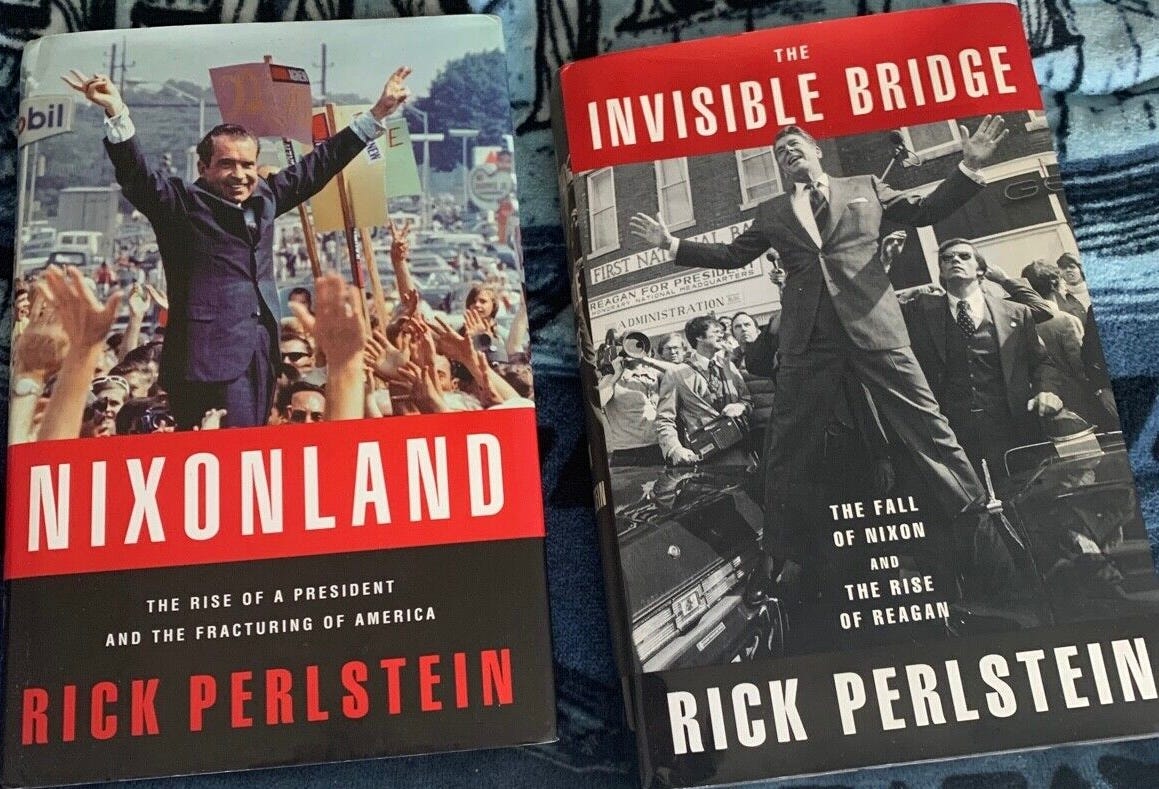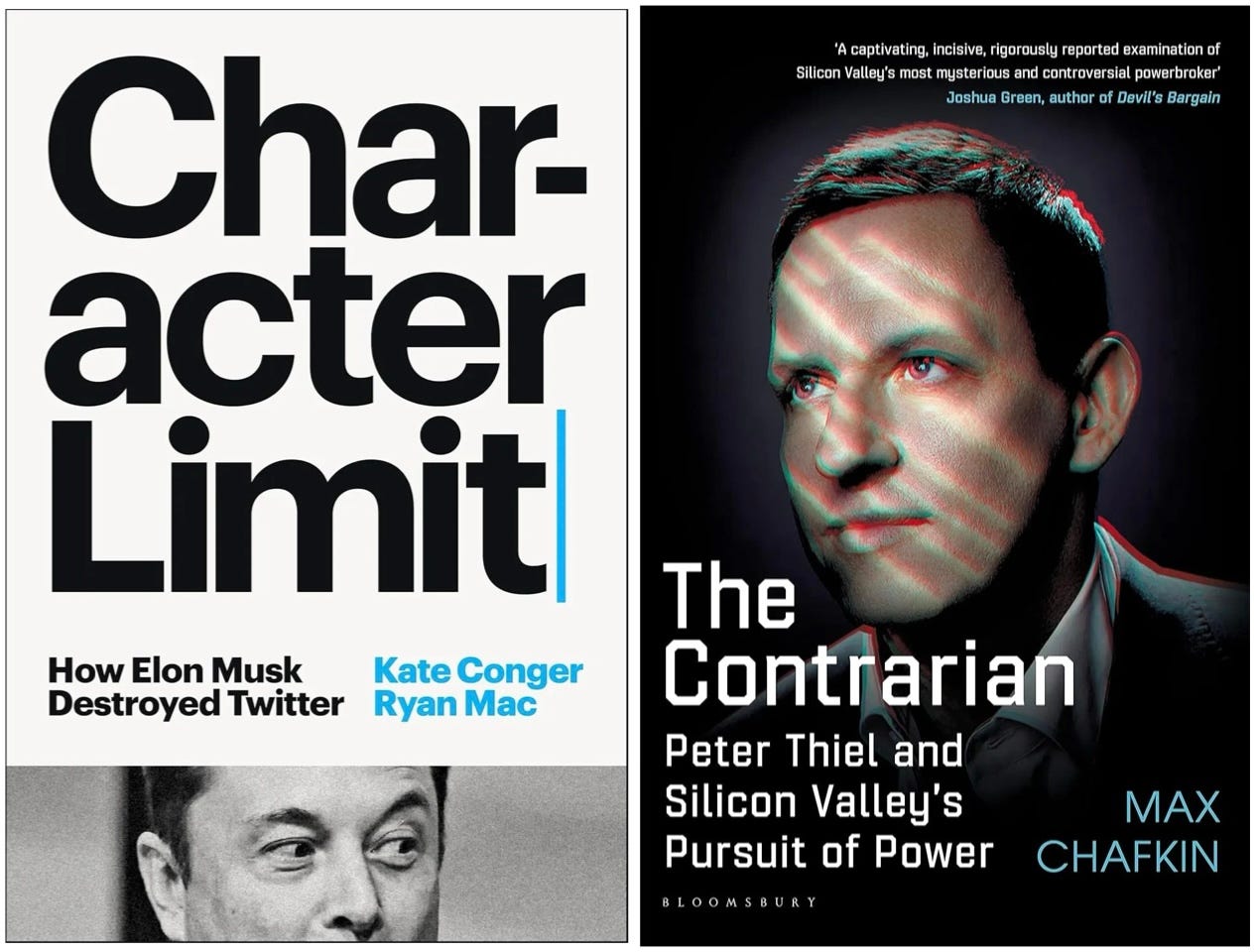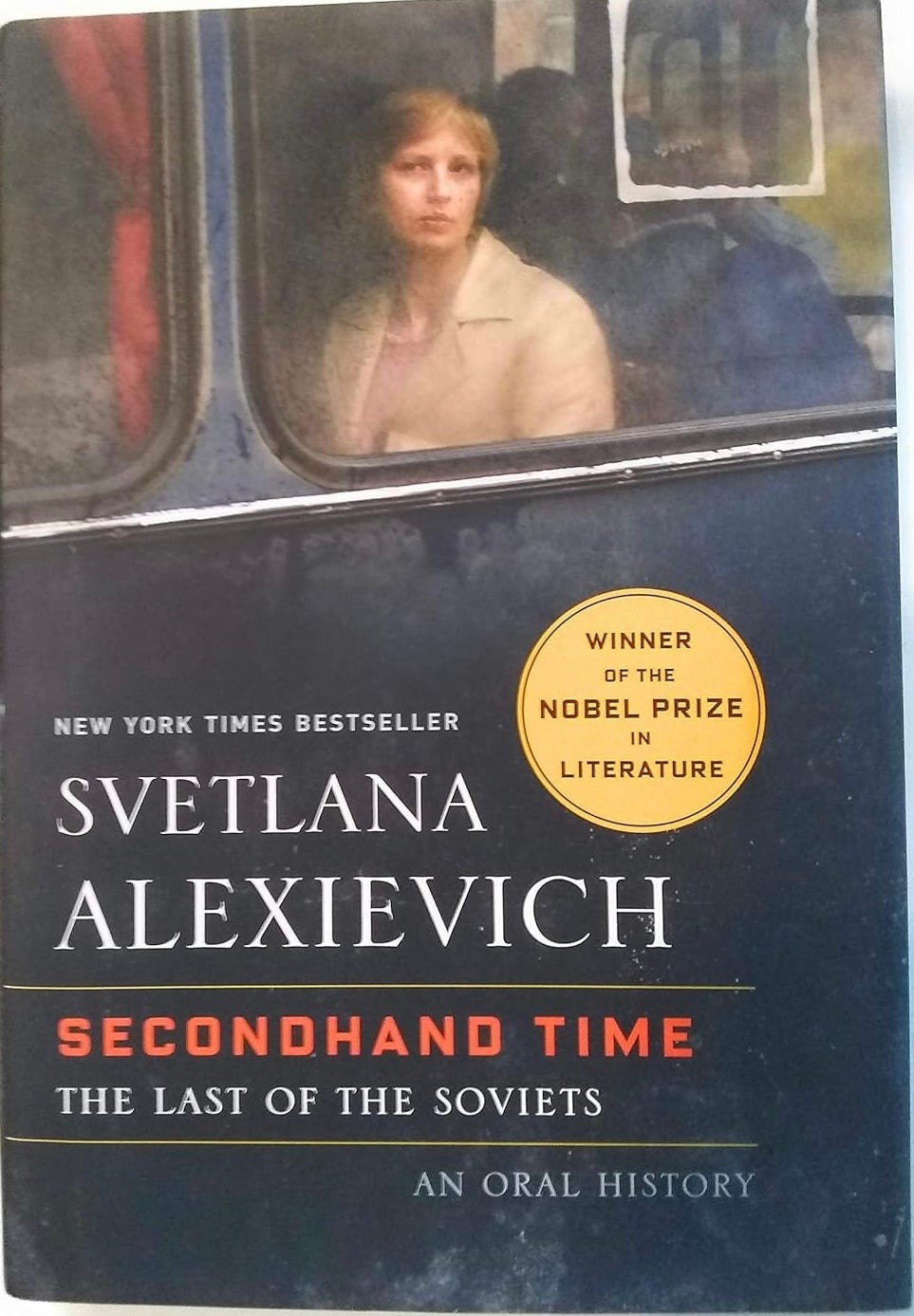31 March 2025. Debt (part 1) | Politics
The grim workings of the distressed debt market // Books that explain the present political moment [J2T #634]
Welcome to Just Two Things, which I try to publish a couple of times a week. Some links may also appear on my blog from time to time. Links to the main articles are in cross-heads as well as the story. A reminder that if you don’t see Just Two Things in your inbox, it might have been routed to your spam filter. Comments are open.
1: The grim workings of the distressed debt market
Watching the UK television station Channel 4 can be a grim experience these days, but every so often there’s a glint of light between the dross. One such moment was Michael Sheen’s recent programme on debt, The Secret Million Pound Giveaway.
(Michael Sheen’s Secret Million Pound Giveaway. Photo: Channel 4)
Sheen is usually described, these days, as “the Welsh actor and activist”, and he still lives in south Wales despite a stellar film and television career. The programme on debt was definitely at the “activist” end of the spectrum. It followed him over more than eighteen months as he found out if it was possible to use £100,000 of his own money to buy up, and cancel, £1 million worth of debt held by people in south Wales. (For the record, he was not paid for making the programme).
You’re not reading that wrong. Spending £100,000 could, potentially, allow him to write off ten times that amount of debt. And that journey took him into the murky workings of the distressed debt market.
And it works like this.
When another company acquires some debt held by an individual, they have to let them know, by writing to them. If they have bought debt at, say, 30 pence to the pound, you need to recover 40-50 per cent of it to cover your costs and make a margin.
But that’s not the end of it. Because you can also sell on the debt you can’t recover, only this time at 10 pence or so on the pound. Of course, that doesn’t mean that the borrower is any better off. By the time their debt reaches this end of the distressed debt market, it has been stacked high with interest charges, sometimes at usurious levels, and a whole lot of administrative and other fees. The amount they owe will have ballooned.
For Sheen, it’s a slow process. He has a poacher-turned-gamekeeper from the debt sector to help him. It takes them six months to get the licences they need to buy debt, and another year or so to identify the right debt, to buy it, and to cancel it.
(Image: Fair by Design)
Along the way, he engages with the Fairer Banking For All Campaign, which is campaigning for a Fair Banking Act, based on an American model. The Finance Innovation Lab says that
The UK has some of the worst levels of financial exclusion in relation to comparable economies. Millions of people do not have access to the financial services they need for day-to-day living.
The costs of this are not just held by low income families but by the economy as a whole:
Even before the pandemic, over 10 million people could not access affordable credit, forcing over 3 million people to turn to very high-cost providers like pay-day lenders where interest rates can be over 1,000%.
This isn’t a trivial problem. A briefing by the Debt Justice campaign in 2022 summarised the issue in this way:
Overall non-mortgage borrowing has now reached £200 billion, averaging over £7,000 per household. 6.2 million people are now in debt to the government, through council tax and other debts... Energy debt has doubled, with £1 billion now owed to suppliers.
People in the poorest areas of England, they say, “are twice as likely as people in the wealthiest areas to have borrowed more or used more credit than usual.” This is also a social justice issue:
Workers, carers, parents, women, renters, people with disabilities and communities of colour are all disproportionately affected by debt.
And personally writing off a million pounds of distressed debt is generous, but it is also a drop in the ocean. There’s something like £55 billions floating around in the distressed debt market.
The ambition of the Fair Banking Act seem pretty modest to me. It’s a ‘score and shame’ proposal targeted at the main retail banks, requiring them to publicly disclose their performance on reducing financial exclusion, creating a rating system that would therefore be come a ranking system.
Under the Act, banks would be able to improve their ratings by expanding their provision of affordable and ethical lending to underserved communities; providing fair services to the financially excluded; and—perhaps most important, I’d say—creating partnerships with community finance institutions and similar social purpose organisations who are committed to fair finance.
There is an all-party group of MPs trying to promote this legislation.
The focus of Michael Sheen’s programme was just on debt and its workings, and therefore it broadly stopped at this point. But once you start on this the whole privileged basis of money in the modern state starts to unravel in front of your eyes.
In the eighteen months or more that Sheen spent making the programme, he was unable to get anyone from one of the big British retail banks, or the trade body UK Finance, to talk about the secondary debt market or fairer credit.
(He did get a loan shark to speak to him, albeit visually disguised and re-voiced: “I make a nuisance of myself. I’m not going to beat someone up for a grand.”)
All of this immediately struck me as interesting. The ex-journalist in me always finds such absences in stories worth thinking about. Because all of these people have done their media training; they have flunkies to prepare talking points; they have enough clout to impose a few conditions on the scope of the interview.
Come to that, they can talk—as well as the next person—concerned platitudes about their agreement that something needs to done, and they’ve been involved in behind the scenes conversations which they aren’t in a position to disclose, but the whole area is fraught with complications and potential unintended consequences so it is important to proceed carefully. And slowly. And so on, and so on, boringly enough that no-one will remember afterwards what you said.
After all, one of the reasons that businesses have trade bodies is so they can do exactly all of this on their behalf.
In other words, their complete non-appearance in a programme that was almost two years in the making was a bit of a dog that didn’t bark.
There’s a big reason for this. Once you start tugging at the loose ends of the distressed debt market, the entire political economy of the British banking system starts appearing out of the mist. And this is a vast system that privileges financial capital at the expense of the rest of us, in two important ways.
The first is the banks’ business model, which is about having permission from the state to create money by creating credit. The second is the terms on which “fractional reserve banking” works. That immediately sounds technical, and it is, if only slightly. As a condition of doing business, the banks have to hold part of their reserves with the Bank of England as an insurance policy against a run on the bank. And they earn interest on all of that—paid at whatever the current bank rate is. (Other countries do this in different ways).
These two facts mean that the raw materials that the banks use—the creation of money through the creation of credit—come for free, and they get paid well for monies held at the Bank of England as a form of public insurance. I’ll get into that more in the second half of this post.
But: it’s not surprising that none of them wanted to speak. You don’t want facts like this getting out beyond the group of monetary economists and bankers who take it for granted as a fact of life.
You can watch Michael Sheen’s Million Pound Giveaway on 4 All, although you may need a VPN if you are outside of the UK.
2: Books that explain the present political moment
Sam Freedman has a good post at his Comment is Freed newsletter (and outside of its usual paywall) on ten books that he’s read that, for him, help to explain the present political moment. By which I mean the aggressive attempt by the current American administration to dismantle the institutions of American democracy at home, and to remake the international world order. (I’ve written about these on Just Two Things, here and here, respectively.)
I’m not going to discuss all ten, and I’ve read about three of these, but there’s a thread through this article which takes the story back to the 1960s, especially in America, which is about the right timespan to understand this, I think.
So let try to construct a narrative thread that connects some of them together.
(Image via eBay)
The deeper history is built around Rick Perlstein’s quartet of books about American politics, tracking back to Barry Goldwater, Nixon and Reagan: Before The Storm, Nixonland, The Invisible Bridge, and Reaganland. On Nixon:
It shows how his own grudges against elite America made him the perfect candidate to change the Republican party.
The third and fourth books cover the period before Reagan became President, but covers the way he built his political image. The detail in here that is more pertinent is about organising:
What makes these books so fascinating is the sheer volume of detail about the way the right built popular movements around cultural and racial issues like school bussing and housing discrimination, and the growing role of evangelical Christians within the Republican party.
The 1990s is covered off in Nicole Hemmer’s book Partisans, which follows the rise to prominence of the right wing talk show host Rush Limbaugh, the right-wing independent Presidential candidate Pat Buchanan, and probably most significant the Republican House speaker Newt Gingrich:
If people like Limbaugh and Laura Ingraham changed the tone of Republicanism, paving the way for the Tea Partiers during the Obama era and ultimately Trump, it was Gingrich who changed the norms around formal Washington politics as House Speaker... He went against the prevailing wisdom by shifting away from what was seen as the political centre and using hyper-partisan tactics and language (though now they just seem normal).
On Trump’s first term, Freedman picks out Maggie Haberman’s Confidence Man. It’s a biography that looks at Trump’s career until the end of his first term:
The most illuminating sections of the book for me are about his early career cadging money out of state governments to fund his grandiose buildings and his attempts to break into the casino business. My view that he is best understood as an aging mob boss was formed in part by reading those chapters. Those are the people he hung around with, so it’s hardly surprising.
The next pair, The Contrarian and Character Limit, connect Elon Musk and his Silicon Valley shadow, or perhaps mirror, Peter Thiel, co-investors in Paypal who later fell out. If Musk bought his political influence by throwing money at Trump, Thiel is the money that is behind the Vice President J.D. Vance, connecting the Valley’s techno-utopian strand with the Republican party’s alt-right.
[The Contrarian] covers the development of Thiel’s right-wing philosophy, the story of PayPal and his initial falling out with Elon Musk (who was kicked out as CEO while on honeymoon), and his increasingly dark and anti-democratic views following 9/11 and the financial crisis.
Character Limit is about Musk’s takeover of Twitter and his application there of the techniques he is now testing to destruction within the American government:
Musk comes across pretty much exactly as you’d expect – thin-skinned, impulsive, unable to separate fact from fiction, almost entirely lacking in empathy, cycling between mania and self-pity... The real value in the book is that DOGE is following the approach he used in dismantling Twitter: cutting staff almost at random and then trying to hire back people who turned out to be critical; insisting on petty cost savings that ultimately led to more expensive failures; refusing to pay bills; and being willing to lose multiple court cases because the costs are lower (in his eyes) that just charging ahead anyway.
Of course, Trump is also a notorious non-payer of bills: the two men must see themselves in each other.
Moving to some wider perspectives, Freedman discusses Quinlan Slobodian’s Crack-Up Capitalism, which documents the right-wing libertarian war against democracy, and The Light That Failed, by Ivan Krastev and Stephen Holmes.
Slobodian looks at how places like Hong-Kong, Singapore and Dubai have developed as centres for capitalism without democracy. This has inspired other non-democratic states like China, for whom Hong Kong is an explicit model for their rapid development of new cities.
As Freedman notes, this is also something of an obsession of Peter Thiel’s, with his ‘seasteading project’ that escapes, apparently, from the tiresome business of state and local regulation.
(Concept image. The Seasteading Institute, via Wikipedia. CC-BY-1.0)
Some of what’s going on now in America and in Europe is a blowback from the so-called ‘Chicago experiments’ in Russia and eastern Europe after the collapse of communism, which is the subject of The Light That Failed.
The first section focuses on attempts to impose models of Western liberal democracy on Eastern European states after the collapse of the Warsaw Pact and the resentments this created both within elites and the wider population.
I’m not sure that I’d describe it like that: the model that was being imposed was much more like hardline market liberalism, and the outcomes were ruinous economic shock and an outflow of young people.
One of the beneficiaries of this, eventually, was Putin, whose political base came from stabilising the Russian economy (while also looting it) after a long period of turmoil, and Krastev and Holmes also discuss the way this created a platform for authoritarianism.
Secondhand Time, by the Nobel Prize winner Svetlana Alexievich, is a better guide to how that grim American experiment felt for the people who were its subjects.
Her method is to interview hundreds of people, most entirely ordinary, and piece it together into a narrative with almost no authorial interjection... Second-Hand Time really helps the reader understand the mixed feelings of seeing the Soviet empire collapse, the brief hope that something better was coming, and the bitter disappointment when it didn’t.
Freedman says it “explains better than anything else I’ve read why democracy didn’t stick” in Russia—and also one of the best books he’s ever read.
The title of the Rick Perlstein book The Invisible Bridge comes from some advice that the Russian leader Nikita Kruschev once gave to Nixon:
“If the people believe there’s an imaginary river out there, you don’t tell them there’s no river. You build an imaginary bridge over the imaginary river.”
As metaphors go for the politics that we’re living through at the moment, it’s almost too good to be true.
j2t#634
If you are enjoying Just Two Things, please do send it on to a friend or colleague.









